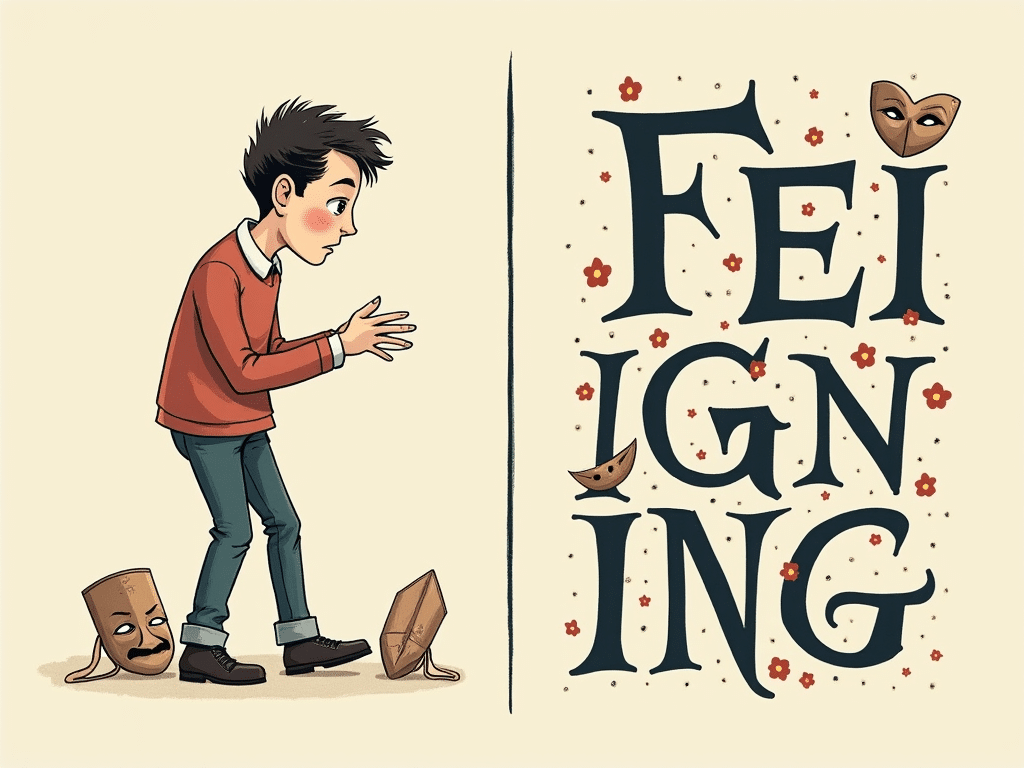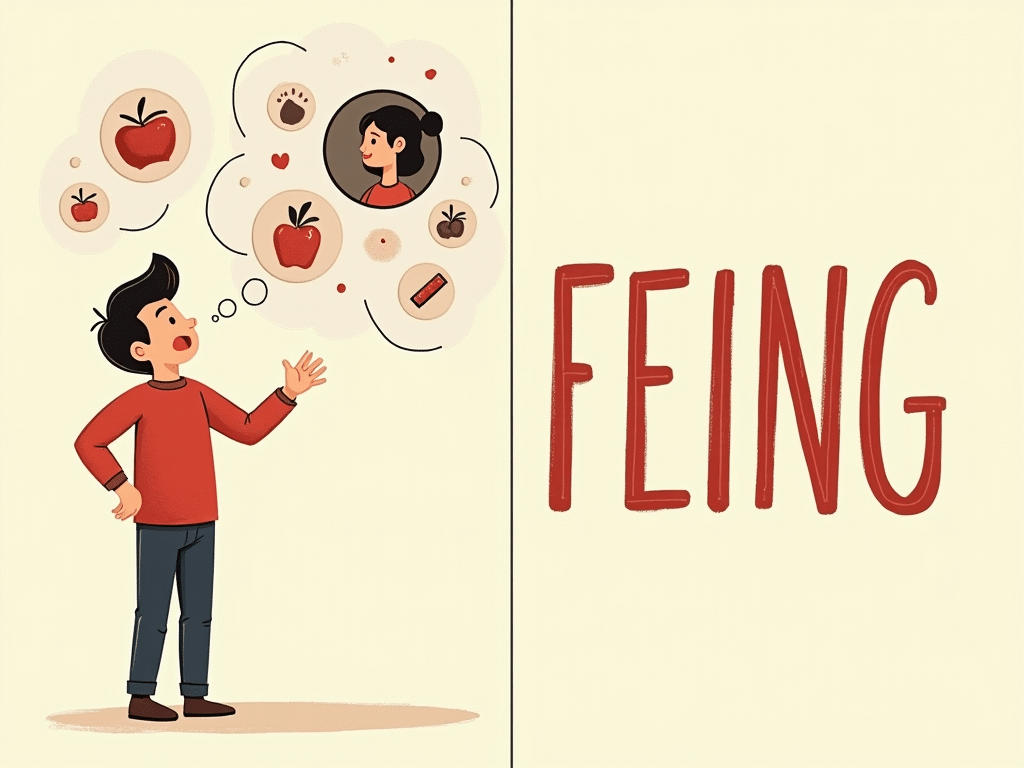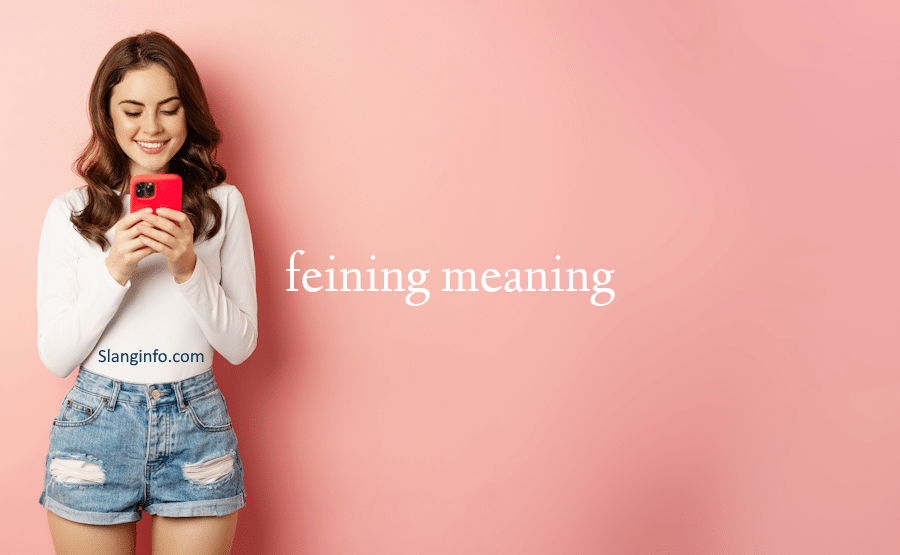Hey there, word warriors! Ever caught yourself typing “feining” when you meant “feigning”? Don’t worry, you’re not alone! This mix-up happens so often, it’s practically become its own thing. But let’s clear up the confusion and get to the bottom of what this word really means and how to use it correctly. 📚
| Key Takeaways | Description |
|---|---|
| Correct Spelling | “Feigning” (not “feining”) |
| Definition | Pretending or faking something |
| Common Usage | Acting sick, showing false emotions, pretending ignorance |
| Origins | From Old French “feindre” meaning “to pretend” |
| Modern Context | Often used in social media and daily communication |
Feining: The Truth About This Common Spelling Mistake 🤔

Correct Spelling vs. Common Mistake
Alright, let’s get real for a second. If you’ve been writing “feining,” you’ve been doing it wrong – but don’t feel bad! Even some of the best writers sometimes mix this one up. It’s like when people write “your” instead of “you’re” – it happens! 🤷♂️
Here’s why people often get it wrong:
- The pronunciation sounds like “faining”
- The “g” is silent in “feigning”
- Similar words like “gaining” don’t have a “g”
- Autocorrect doesn’t always catch it
The correct spelling is “feigning” – with that sneaky “g” in there. Think of it like the “g” in “reign” or “foreign.” It’s silent but important!
What Does Feigning Mean?

Now that we’ve got the spelling sorted, let’s talk about what this word actually means. Feigning is basically just a fancy way of saying “pretending” or “faking.” It’s like when your friend is “delulu” about their acting skills – they might be feigning talent! 😉
Here are some common examples:
- Emotional feigning:
- Pretending to be happy at a boring party
- Acting surprised at a planned event
- Showing fake enthusiasm for someone’s story
- Physical feigning:
- Pretending to be sick to skip school/work
- Acting more tired than you really are
- Faking an injury in sports
- Social feigning:
- Pretending to like someone’s terrible cooking
- Acting interested in a boring conversation
- Showing false agreement with someone’s opinion
Types of Feigning
Let’s break down the different ways people might feign something. Trust me, once you start noticing these, you’ll see them everywhere! 👀
Emotional Feigning:
- Fake laughing at bad jokes
- Pretending to be sad when you’re actually relieved
- Acting excited about a gift you hate
Physical Feigning:
- The classic “fake cough” to get out of something
- Pretending to be asleep when someone walks in
- Acting like you didn’t see someone to avoid talking
Social Feigning:
- Pretending to be busy on your phone
- Acting like you didn’t hear someone’s question
- Faking knowledge about a topic you know nothing about
It’s kind of like when someone uses “pogchamp” without actually knowing what it means – they’re feigning knowledge of internet culture!
Cultural Impact

In today’s world of social media and constant connection, feigning has taken on new forms. Think about it – how many times have you seen someone:
- Pretending to be living their best life on Instagram
- Faking expertise on Twitter
- Acting like they care about a cause just for likes
- Showing false enthusiasm in reaction videos
It’s become such a common part of our online culture that sometimes it’s hard to tell what’s real and what’s feigned. It’s like trying to figure out if someone’s “spilling the tea” or just making stuff up! 🫖
How to Identify Feigning 🔍
Let’s get real about spotting when someone’s putting on an act. Just like how you can tell when someone’s using “cap” wrong, there are some dead giveaways for feigning:
Body Language Clues:
- Exaggerated expressions
- Inconsistent gestures
- Delayed reactions
- Forced smiles
Verbal Signs:
- Over-the-top enthusiasm
- Inconsistent stories
- Too many details
- Sudden changes in tone
Think of it like being a human lie detector, but instead of looking for lies, you’re spotting pretense. It’s all about noticing when something feels “sus”!
When Feigning Becomes Problematic
Look, we all pretend sometimes. Maybe you’ve faked being busy to avoid a “situationship” drama. But there’s a line between harmless pretending and problematic behavior.
Here’s when feigning can become an issue:
- Mental Health Impact:
- Constant pretending leads to emotional exhaustion
- Loss of authentic self-expression
- Anxiety about maintaining false personas
- Relationship Damage:
- Eroded trust
- Shallow connections
- Missed opportunities for genuine bonding
- Professional Consequences:
- Reputation damage
- Lost credibility
- Career setbacks
The Psychology Behind Feigning
Why do people feign in the first place? Let’s break it down:
| Motivation | Example |
|---|---|
| Fear | Avoiding conflict |
| Insecurity | Pretending confidence |
| Social pressure | Fitting in with peers |
| Convenience | Avoiding unwanted situations |
It’s like when someone’s “grinding” but pretending it’s not hard – there’s usually a deeper reason behind the act.
Tips for Authentic Communication
Instead of feigning, try these strategies for more genuine interactions:
- Be Honest (Tactfully):
- “I appreciate the invitation, but I need some alone time”
- “That’s not really my area of expertise”
- “I’m still learning about that topic”
- Set Boundaries:
- Express your limits clearly
- Don’t feel pressured to fake interest
- Allow yourself to say no
- Practice Self-Awareness:
- Notice when you’re tempted to feign
- Question your motivations
- Choose authenticity when possible
The Future of Feigning
In our increasingly digital world, the line between authentic and feigned behavior gets blurrier every day. Think about:
- Virtual reality interactions
- Social media personas
- Online dating profiles
- Professional networking
It’s becoming more important than ever to balance our online and offline selves. Just like how “YOLO” reminds us to live authentically, we should strive for genuine expression when possible.
Conclusion
Whether you’ve been spelling it “feining” or using it correctly as “feigning,” the important thing is understanding what it means and its impact. Here’s what to remember:
- Spell it right: “feigning” (with the g!)
- Use it consciously and sparingly
- Recognize when others might be feigning
- Value authentic connections
- Balance social grace with honesty
Remember, it’s okay to be real. You don’t always have to pretend to be “that girl” or act like everything’s “poggers”. Sometimes the most powerful thing you can do is just be yourself. 💫
P.S. Want to learn more about authentic communication and modern slang? Check out our articles on genuine expression and real talk. Because at the end of the day, keeping it real is always in style! 🌟
Remember: Life’s too short to spend it pretending. Unless you’re an actor – then it’s literally your job! 😉







